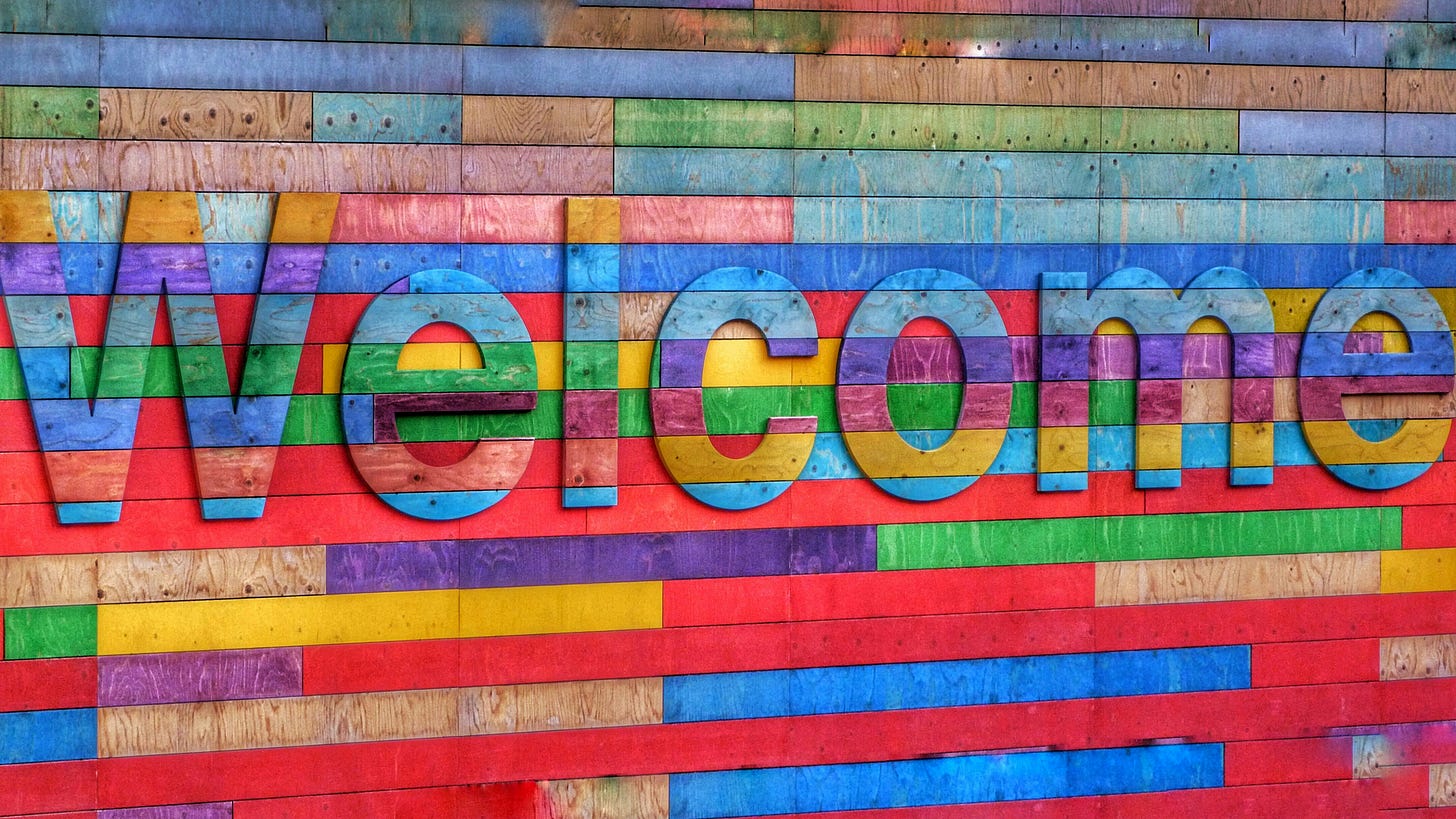Photo by Belinda Fewings on Unsplash
In a recent interview, J.D. Vance, when asked about immigration, had this to say, “There's this old school, and I think it's a very Christian concept, by the way, that you love your family and then you love your neighbor, and then you love your community, and then you love your fellow citizens in your own country, and then after that, you can focus and prioritize the rest of the world.”
It is important to say at the outset that immigration is a complex issue that is layered and complicated. I will leave that to other qualified people to speak to about those complexities. However, as a Christian and a pastor, I find these words from J.D. Vance deeply concerning, to put it mildly. The message he espouses is contrary to what Jesus taught and is, therefore, not a Christian concept at all.
The Gospel of Luke highlights a conversation between Jesus and a religious leader. The religious leader asked Jesus what the greatest commandment was, or, in other words, “Jesus, how would you encapsulate living out our faith?”
Jesus responds to his question with another question: what do the Scriptures say?
The religious leader answered, “You must love the Lord your God with all your heart, with all your being, with all your strength, and with all your mind, and love your neighbor as yourself.”(Luke 10:27, CEB).
Okay, but who is my neighbor?
Is it my family and friends? Is it those that I live next to who go to school with my kids?
Who is my neighbor?
Jesus then launches into the parable of the Good Samaritan. While this story is familiar to many, we should not be quick to forget that it is about someone in need. The person who was left for dead on the side of the road was in no condition to help himself. The two religious leaders in the parable who could have shown love and mercy made a conscious decision to do nothing and cross to the other side of the road.
Instead, the hero of this parable is a Samaritan. He is not a family member and definitely not a friend; in fact, they are sworn enemies. The Samaritan traveler did not know why the man was lying on the roadside. All he knew was that if he did not help, the man on the side of the road would die. Whatever the Samaraitan was doing and wherever he was going was paused to help him.
And then Jesus addresses the original question when he asks, “What do you think? Which one of these three was a neighbor to the man?” (Luke 10: 36, CEB)
The religious leader responded by simply saying, “The one who demonstrated mercy toward him.” (Luke 10: 37, CEB)
The words of J.D. Vance are one of relational proximity. If I like you—if I agree with you—if you are a part of “my tribe,” then I will help you.
Even what J.D. Vance first mentions, helping your family first, runs counter to what Jesus said elsewhere.
Just a few chapters after the Good Samaritan story, Jesus says that our commitment to follow Jesus should come first, even before our family. The love of God and neighbor must be first.
Who is our neighbor?
It is the one to whom we show mercy—especially those we perceive as our enemies. Our neighbor is not bound by relationship, location, or borders. Following the way of Jesus means loving and offering mercy to all people.
Christians must not confuse the policies of their political affiliation with the way of Jesus. There will be moments when our political tribe aligns with the way of Jesus and other times when, like J.D. Vance, it runs in the other direction.
Our political tribe should not guide us; instead, our lives should be centered on the life and teaching of Jesus. In these complex and complicated times, we must love God with all we are and love our neighbor by showing mercy and grace to everyone.
I am reminded of the words of John Wesley, "What is the perfection of religion? It is love. The love of God and our neighbor; the loving God with all our heart and soul, and our neighbor as ourselves." (Sermon 12: The Great Commandment)
No matter who received your vote in 2024, Christians everywhere must not neglect our neighbor. Like the Good Samaritan, we must fight the urge to look the other way. Instead, we must offer our hand and help our neighbor, even when others have crossed to the other side of the road.
Our lives cannot be absent of mercy for everyone, everywhere, who is in need.
Who is my neighbor? It is our friend next door and those we don’t know. Our neighbor is in our local community and across the world. Our neighbor is our family and those we perceive to be our enemies.
Who is my neighbor? Everyone is my neighbor!





Great perspective! Thank you!